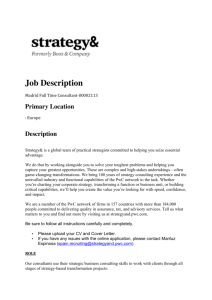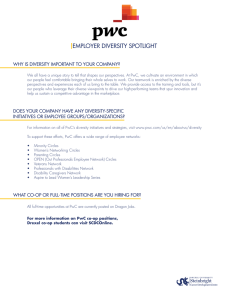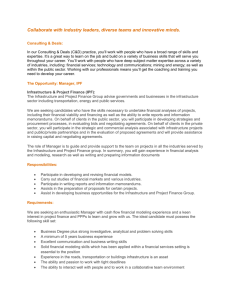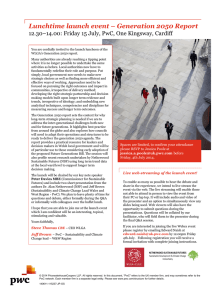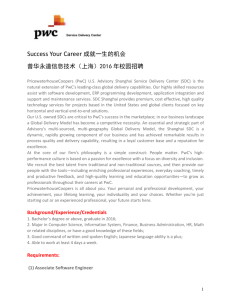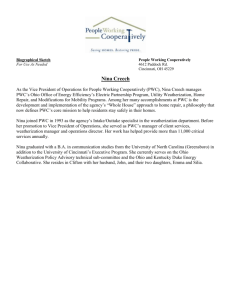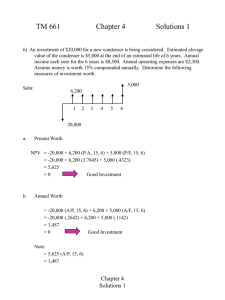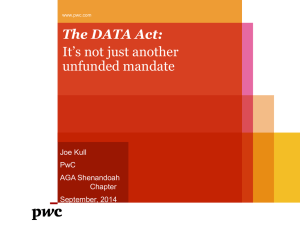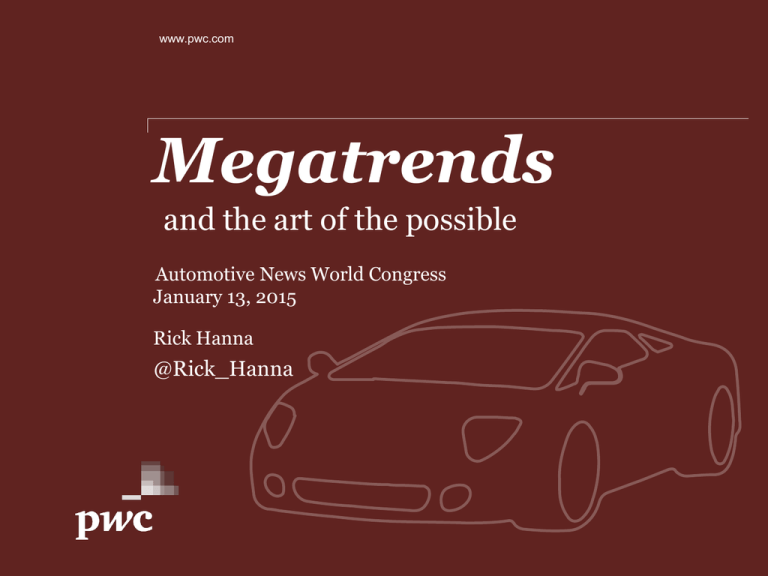
www.pwc.com
Megatrends
and the art of the possible
Automotive News World Congress
January 13, 2015
Rick Hanna
@Rick_Hanna
Topline assembly outlook
Global light vehicle assembly is forecasted to reach 90m units in 2015, a 5.6% increase
from 2014. Autofacts is forecasting 2021 light vehicle assembly to reach 110m units.
Global Light Vehicle Assembly
2011 – 2021 (millions)
140
100%
130
90%
120
36
110
30
29
29
23
26
31
60%
50%
21
80
40%
70
60
80%
70%
34
100
90
32
30
75
80
83
85
90
95
101
105
108
109
110
30%
20%
Assembly Volume
Source: Autofacts 2015 Q1 Forecast Release
PwC Autofacts ®
Excess Capacity
Utilisation (R-Axis)
2021F
2020F
2019F
2018F
2017F
2016F
2015F
2014F
0%
2013
40
2012
10%
2011
50
Regional outlook
The lion’s share of the new volume is expected to come from developing markets, and in
particular developing Asia-Pacific, providing over 62% CTG** from 2014-2021.
Regional Contribution to Growth*
2014 – 2021 (percentage share)
Americas
Europe, Middle East & Africa (EMEA)
Asia-Pacific
North
America
South
America
European
Union
Eastern
Europe
Middle East
& Africa
Developing
Asia-Pacific
11.2%
9.2%
8.2%
7.3%
4.5%
62.6%
Developed
Asia-Pacific
-3.1%
Regional Topline Comparison & Volume Change
2014 vs. 2021
∆
+2.8m
+2.3m
+2.1m
+1.8m
+1.1m
+15.7m
-774k
19.8m
6.3m
18.9m
5.2m
2.9m
44.7m
12.5m
17.0m
4.0m
16.8m
3.4m
1.8m
29.0m
13.3m
Source: Autofacts 2015 Q1 Forecast Release *Region size not to scale
PwC Autofacts ®
**CTG = Contribution to Growth
5
Carolina
CalArts
Pixar
Africa
Carolina’s is one
story out of seven
billion…
Singapore Mumbai
USA
Megatrends
Accelerating
urbanization
Demographic
shifts
Shift in global
economic
power
Climate
change &
resource
scarcity
The rise in prominence of cities in the global economy has
been truly unprecedented…
More than half of the global population now lives in cities, compared to
2% in 1800. 1.5 million people are added to this total every week.
Share of total global population living in urban areas
Size of global urban population (bn)
8.1b
51%
57%
39%
1980
Global population
(billions)
2010
2025 (f)
1980
Proportion of global
population living in urban
areas (%)
Sources: PwC analysis of United Nations, Department of Economic and Social Affairs, Population Division (2013)
PwC
4.6 bn
1.7 bn
4.4b
3.6 bn
6.9b
2010
2025 (f)
PwC
8
So what
does this
all mean?
Accelerating
urbanization
Demographic
shifts
Shift in global
economic
power
Climate
change &
resource
scarcity
?
3 things
Business leaders
can do
Relevance
Strategy
Purpose
© 2014 PricewaterhouseCoopers LLP, a Delaware limited liability partnership. All rights reserved.
PwC refers to the US member firm, and may sometimes refer to the PwC network. Each member firm is a separate legal entity. Please see www.pwc.com/structure for further details.
This content is for general information purposes only, and should not be used as a substitute for consultation with professional advisors.

